
International Journal of Mobile Learning and Organisation
Scope & Guideline
Bridging Mobile Learning and Organizational Excellence
Introduction
Aims and Scopes
- Mobile Learning Technologies:
Explores the integration and effectiveness of mobile technologies in educational settings, including mobile applications and platforms that support learning. - Innovative Pedagogical Approaches:
Examines new teaching methodologies enabled by mobile learning, such as gamification, challenge-based learning, and immersive virtual environments. - Impact of Technology on Learning Outcomes:
Analyzes the effects of mobile learning on student performance, engagement, and motivation, providing evidence-based insights into educational practices. - Adaptation to Changing Educational Environments:
Focuses on the evolution of learning environments, particularly in response to global challenges like the COVID-19 pandemic, and how mobile learning facilitates transitions. - Diversity in Learning Contexts:
Addresses the application of mobile learning across diverse populations and educational levels, including K-12 and higher education, as well as professional training.
Trending and Emerging
- Immersive Learning Environments:
A significant trend towards the use of augmented reality (AR) and virtual reality (VR) in mobile learning, highlighting their role in creating engaging and interactive educational experiences. - Personalized Learning Experiences:
Research is increasingly focusing on adaptive learning technologies that tailor educational content to individual learner needs, enhancing the personalization of mobile learning. - Mental Health and Well-being in Learning:
Emerging studies are addressing the psychological aspects of mobile learning, including its impact on student well-being and how mobile technologies can support mental health. - Data-Driven Learning Analytics:
There is a growing emphasis on the use of learning analytics to assess and improve mobile learning environments, leveraging data to enhance educational outcomes. - Cross-Cultural Mobile Learning Applications:
Increasing research on the effectiveness and adaptation of mobile learning tools in diverse cultural contexts, reflecting a global perspective on education.
Declining or Waning
- Traditional Classroom Learning:
Research emphasizing conventional, non-mobile learning methods has become less frequent as the focus shifts towards innovative and technology-enhanced pedagogies. - Static Learning Materials:
There is a noticeable decrease in studies centered around traditional textbooks and static resources, as mobile learning promotes dynamic and interactive content. - General Educational Technology:
Broad studies on educational technology without a specific focus on mobile applications are declining, as more targeted research on mobile learning emerges. - Single-Method Research Designs:
The journal has seen fewer publications relying solely on qualitative or quantitative methods, with a growing preference for mixed-method approaches that provide richer insights. - Focus on Older Technologies:
Research related to earlier mobile technologies, such as basic SMS or early mobile apps, is declining as the emphasis shifts to more advanced mobile learning tools and methods.
Similar Journals

International Journal of Mobile and Blended Learning
Navigating the New Frontier of Mobile Learning SolutionsThe International Journal of Mobile and Blended Learning (ISSN: 1941-8647; E-ISSN: 1941-8655), published by IGI Global, is a premier platform dedicated to advancing the understanding and implementation of mobile and blended learning methodologies. Established in 2009 and publishing until 2024, this esteemed journal serves as a critical resource for researchers, educators, and professionals in the fields of Computer Science and Education, achieving a notable Q2 ranking in both these categories as of 2023. With a strong focus on innovative practices and recent trends in E-learning, this journal is indexed in Scopus, boasting robust rankings that place it in the 68th percentile for Social Sciences and the 56th percentile for Computer Science. The journal encourages contributions that explore the intersection of technology and pedagogy, ultimately aiming to enhance educational experiences through the effective integration of mobile technologies. Whether you're a seasoned researcher or a student eager to delve into the latest educational technologies, the International Journal of Mobile and Blended Learning serves as an invaluable resource that fosters scholarly dialogue and promotes cutting-edge research in this dynamic field.
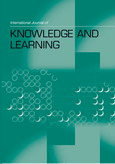
International Journal of Knowledge and Learning
Advancing educational discourse through innovative research.International Journal of Knowledge and Learning, published by INDERSCIENCE ENTERPRISES LTD, is a pivotal platform in the field of education, positioned within the Q3 category according to the 2023 quartiles. With an ISSN of 1741-1009 and E-ISSN of 1741-1017, this journal serves as a crucial resource for researchers, educators, and policy makers who are keen on advancing the dialogue surrounding knowledge dissemination and learning processes. Covering a wide array of topics within the educational sector, the journal has remained a respected outlet for scholarly work since its inception in 2005, with recent converged years extending through 2024. The journal's Scopus ranking places it securely in the 44th percentile among over 1,500 educational journals, emphasizing its significance in disseminating quality research. While it does not currently offer open access, its contribution to the academic community remains substantial, attracting submissions that foster innovative thought and empirical study in educational practices worldwide.

Bulletin of the Technical Committee on Learning Technology
Innovating Education Through Technology InsightsBulletin of the Technical Committee on Learning Technology, published by IEEE-INST ELECTRICAL ELECTRONICS ENGINEERS INC, is a pivotal journal that intersects the realms of education and computer science. With a noteworthy ISSN of 2306-0212, this journal serves as a vital platform for disseminating innovative research and development in learning technologies, particularly focusing on technological advancements that enhance educational environments and methodologies. Although coverage in Scopus has been discontinued, the journal's past contributions are reflected in its competitive rankings, with a position of Rank #624 in Social Sciences - Education and Rank #427 in Computer Science - Computer Science Applications. This indicates a solid niche in the academic landscape, making it a valuable resource for researchers, educators, and practitioners seeking to advance the dialogue around technology integration in learning. The Bulletin fosters an open exchange of knowledge and encourages the exploration of emerging technology applications in education, positioning itself as an important component in the ongoing development of learning technologies.

Education and Information Technologies
Navigating the evolving landscape of education and tech.Education and Information Technologies, published by SPRINGER, is a leading journal dedicated to the intersection of educational practices and innovative information technologies. With an impressive impact factor and consistently ranked in the Q1 quartile across Education, E-learning, and Library and Information Sciences, this journal serves as an essential resource for researchers and professionals aiming to explore the dynamic landscape of educational technology. Spanning from 1996 to 2024, it provides a platform for high-quality, peer-reviewed articles that contribute to the evolving discourse in this critical field. The journal’s rigorous Scopus ranking, placing it in the top 4% of Social Sciences Education and top 6% in Library and Information Sciences, highlights its significance in advancing scholarly knowledge. While it offers various access options, the focus remains on delivering cutting-edge research that can inform teaching practices and technological integration in education, making it indispensable for students, educators, and technology developers alike.

Journal of Teaching and Learning
Empowering educators with evidence-based insights.The Journal of Teaching and Learning, published by the University of Windsor, Faculty of Education, is a prominent open-access journal in the field of education, dedicated to fostering scholarly discussion and exploration. Since its inception in 2001, it has served as a vital platform for researchers, educators, and practitioners to share innovative insights and evidence-based practices that advance teaching and learning methodologies. With an impact factor reflective of its category quartiles, it currently ranks in the Q3 category for education according to the 2023 evaluation, standing at 834 out of 1543 in Scopus's social sciences education rankings. This journal aims to bridge theoretical frameworks with practical applications, providing a robust resource for those invested in enhancing educational outcomes. With an open-access model, the Journal of Teaching and Learning ensures that its contributions are readily accessible to a global audience, encouraging the dissemination of knowledge and collaborative learning experiences. The journal is published in Canada and welcomes submissions that explore current trends and future directions in teaching practices, learner engagement, and educational policy.
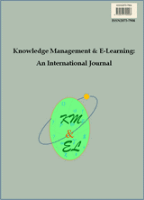
Knowledge Management & E-Learning-An International Journal
Elevating Education with Open Access Knowledge Sharing.Knowledge Management & E-Learning-An International Journal, published by the Laboratory Knowledge Management & E-Learning University in China, is a pioneering open-access platform that has been advancing the fields of education, e-learning, and technology management since its inception in 2009. With an ISSN of 2073-7904 and a commendable placement in the Q2 quartile across multiple categories including Education and Management of Technology and Innovation, this journal serves as a vital resource for researchers, educators, and practitioners seeking current insights and innovative methodologies in knowledge management and digital learning environments. Its recognition within Scopus, ranking 294th in Social Sciences Education and 106th in Business Management, underscores its significance and the impact of its contributions to the scholarly community. With a focus on fostering interdisciplinary collaboration and promoting the latest research findings, Knowledge Management & E-Learning remains committed to enhancing the dialogue on effective knowledge dissemination and digital pedagogies. Accessing its content is straightforward, as the journal has embraced an open-access policy, making research freely available to a global audience.
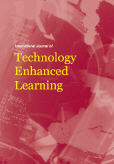
International Journal of Technology Enhanced Learning
Bridging the Gap Between Technology and Effective LearningInternational Journal of Technology Enhanced Learning, published by INDERSCIENCE ENTERPRISES LTD, is a premier scholarly journal that comprehensively explores the intersection of technology and education, fostering innovative approaches to enhance learning processes. Established in 2008 and continuing through 2024, the journal is pivotal for researchers, educators, and technology professionals aiming to disseminate and engage with cutting-edge developments in technology-enhanced learning environments. With an admirable ranking in Scopus—placing in the 72nd percentile of Education and 49th in Computer Science Applications—the journal reflects a robust influence in the fields of Computer Science Applications and Education, as evidenced by its Q2 and Q3 quartile rankings. The journal not only provides a platform for empirical research and theoretical discourse but also emphasizes practical implementations in e-learning. Although it does not offer open access, its curated collection of articles serves as a vital resource for scholars and practitioners who are dedicated to advancing the nexus of technology and education.

International Journal of Technology in Education
Exploring the Future of Learning and TechnologyThe International Journal of Technology in Education, published by the International Society for Technology Education & Science (ISTES), serves as a vital platform for researchers, educators, and practitioners devoted to the intersection of technology and educational practices. With an E-ISSN of 2689-2758, this journal aims to showcase innovative research, case studies, and theoretical contributions that explore how emerging technologies can enhance teaching and learning. Although specific metrics like impact factor and HIndex are currently unavailable, the journal is committed to rigorous peer review and high academic standards, ensuring that all published work contributes meaningfully to the evolving landscape of educational technology. As an open-access journal, it strives to make research widely available, fostering collaboration and knowledge sharing among its audience. Whether you are a researcher exploring new horizons or a professional seeking practical applications of technology in education, the International Journal of Technology in Education is an indispensable resource.
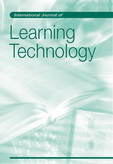
International Journal of Learning Technology
Fostering Collaboration Between Educators and Technologists.Welcome to the International Journal of Learning Technology, a premier platform for scholarly discourse published by InderScience Enterprises Ltd. Operating from Switzerland, this journal delves into the innovative intersections of technology and education, offering insights and research findings that are vital for educators, researchers, and technology developers alike. With an ISSN of 1477-8386 and an E-ISSN of 1741-8119, the journal maintains a commitment to advancing the field through rigorous peer-reviewed articles. As of 2023, it is categorized in the Q4 quartile for both Education and E-learning within Scopus, currently ranked #1051 out of 1543 in the Educational Social Sciences domain. Though it operates under a traditional subscription model, the journal is dedicated to broadening access to its content, ensuring that cutting-edge research reaches a diverse audience. The International Journal of Learning Technology is particularly valuable for its focus on practical applications and transformative learning experiences, catering to the needs of a rapidly evolving educational landscape. Join our community of thought leaders as we explore the future of learning in a technology-driven world.
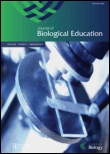
JOURNAL OF BIOLOGICAL EDUCATION
Innovating Biological Learning for Tomorrow's EducatorsThe JOURNAL OF BIOLOGICAL EDUCATION is a prominent academic journal published by Routledge Journals, Taylor & Francis Ltd, focusing on innovative research and practices in the field of biological education. With an ISSN of 0021-9266 and E-ISSN 2157-6009, this journal serves as a vital resource for educators, researchers, and students dedicated to enhancing the teaching and learning of biology. Since its inception in 1967, it has maintained a consistent commitment to promoting best practices and integrating new methodologies into biological curriculum design and pedagogy. The journal holds a respectable impact factor and ranks in the Q2 category for both Agricultural and Biological Sciences and Education, reflecting its influence and authority within these fields. Researchers are encouraged to engage with its diverse range of articles that address critical issues in biological education, showcasing cutting-edge research and practical approaches. Its reach is particularly significant in the United Kingdom and globally, making it a key platform for disseminating knowledge and fostering collaboration among professionals.